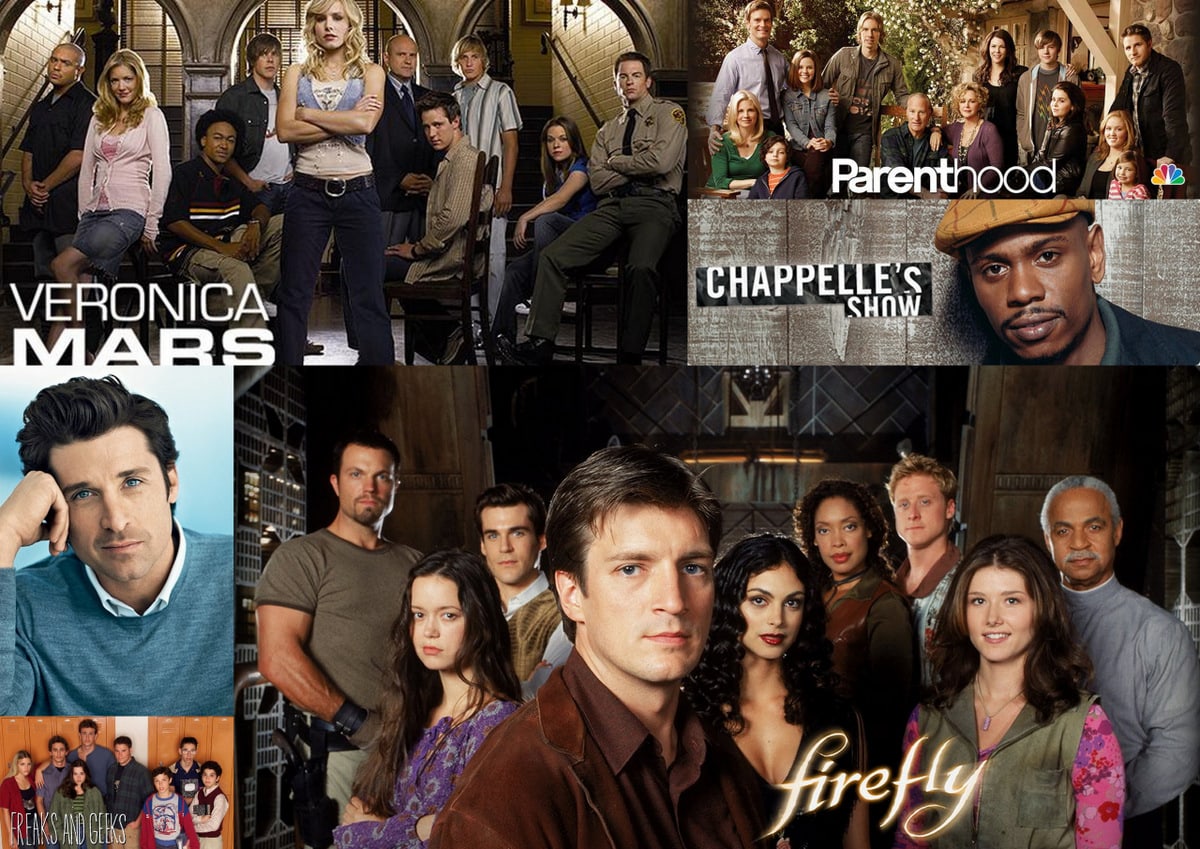When a TV show gets canceled or a favorite television character is written off, the cast and crew of that series are hardly the only ones upset by the news.
For many people, it’s mildly annoying to find out that they’re not going to be able to watch a cool show anymore. But for millions of others, their feelings are more along the lines of anger, depression and real sadness.
Breaking up with the TV
Breaking up with your beloved TV characters or finding out your favorite television show has been canceled can be downright heartbreaking for some people.
In the words of one commenter on IsMyShowCancelled.com about the show Raising Hope, “I find TV shows that are funny to keep laughter in the front seat and depression in the back seat… I wish that I could say to each of the actors what joy, amusement, and especially laughter they brought into my life every week.”
Some fans don’t just get sad — they get mad. More than 100,000 Gray’s Anatomy fans signed an online petition to “Bring Dr Derek ‘McDreamy’ Shepherd BACK!”
The petition’s author writes in an open letter to series creator Shonda Rhimes, “People are not sleeping nor eating because of this tragic turn of events,” and adds, “You do NOT get to toy with our lives and emotions like this Shonda, NO! That is NOT RIGHT! How do you sleep at night?!?!!”
And they’re hardly alone.
A study examined how television viewers reacted when their favorite shows went off the air or were replaced with reruns. The results revealed the important role television plays in the lives of some viewers — particularly those who use television for companionship and those who feel they have a strong “relationship” with their favorite TV characters.
The TV study
The study involved 403 undergraduate college students who completed an online questionnaire in the spring of 2008 during the television writers’ strike. They were asked about how often they watched television, how important viewing was to them, and their reasons for watching.
ALSO SEE: Binge watching TV is the new normal
One set of questions was designed to determine how close the participants felt to their favorite characters on television. For example, they rated on a scale of 1 to 5 how much they agreed with the statement, “My favorite character makes me feel comfortable, as if I am with a friend.”
They were also asked several questions aimed at measuring how much distress they felt as a result of their favorite programs being disrupted by the writers’ strike.
For example, they were asked to rate on a scale of 1 to 5 how much they agreed with the statement, “Now that my favorite television show is off the air, I feel more lonely.” Finally, they were asked what activities they used to fill their leisure time in the absence of their favorite television programming.
Stronger television relationships lead to more sadness
Results showed that people who reported stronger “relationships” with their favorite characters also reported more distress when their programs temporarily went off the air for the strike.
Women, in general, reported having stronger relationships with television characters than did men, results showed. As such, one might expect that the loss of their programs would distress women more than it would men — but that was not the case. There were no gender differences in the levels of distress caused.
“That’s probably the result of the different coping mechanisms that men and women use to deal with the dissolution of their relationships — both real and with TV characters,” Moyer-Gusé said.
In this study, women were more likely than men to say they spent their extra free time in social activities, such as spending time with friends and family, which may have helped them cope.
“We know that men and women cope with real breakups in different ways, and that difference may be translating to these relationships they have with TV characters,” she said.
Moyer-Gusé said the results suggest that the relationships some viewers have with their favorite television characters are indeed like what they have with real friends. But she cautioned not to take the analogy too far.
“While some participants felt real distress at the loss of their favorite TV shows, the distress is not comparable to the distress that comes from real breakups,” she says. “There are some aspects of relationships with TV characters that may be comparable to real relationships, but the intensity is generally much lower.”
However, she noted that this sample only included college students, who normally have many entertainment options open to them. Levels of distress may actually be higher for some groups of people, such as the elderly, who rely more on television for their entertainment and companionship.
If not engaging with TV, then what?
For those who think that less time spent with the media may be a good thing for some people, the results may be disappointing.
TV viewers basically replaced the time they normally spent watching their favorite shows with other media activities, such as watching TV reruns and using the internet, rather than spending more time with friends or exercising, according to the study.
“Some people believe TV isolates people and takes them away from more social activities, but our results suggest that may not be the case,” said Emily Moyer-Gusé, assistant professor of communication at Ohio State University and co-author of the study.
“Many viewers simply replaced their normal TV viewing with other media activities. They weren’t using the opportunity to start exercising or spend more time with friends or family.”
Relaxation, companionship and escape
The level of distress viewers felt also depended on why they watched television, Moyer-Gusé said.
ALSO SEE: 5 ways to handle life’s unexpected events without freaking out
People who said they watched TV just to pass the time weren’t as upset as people who had particular goals for watching programs, such as relaxation, companionship or escape.
“We found that people who primarily watched television for companionship were the ones who felt the most distressed by temporarily losing their programs,” she said.
Most people didn’t do anything radically different with their free time when their shows went off the air.
When asked which of their activities increased since the strike began (participants could name more than one), watching TV reruns was the top choice, cited by half the respondents. About 40 percent said they spent more time on the internet. Only 15 percent said they spent more time exercising, and 18 percent said they spent more time with friends and family.









